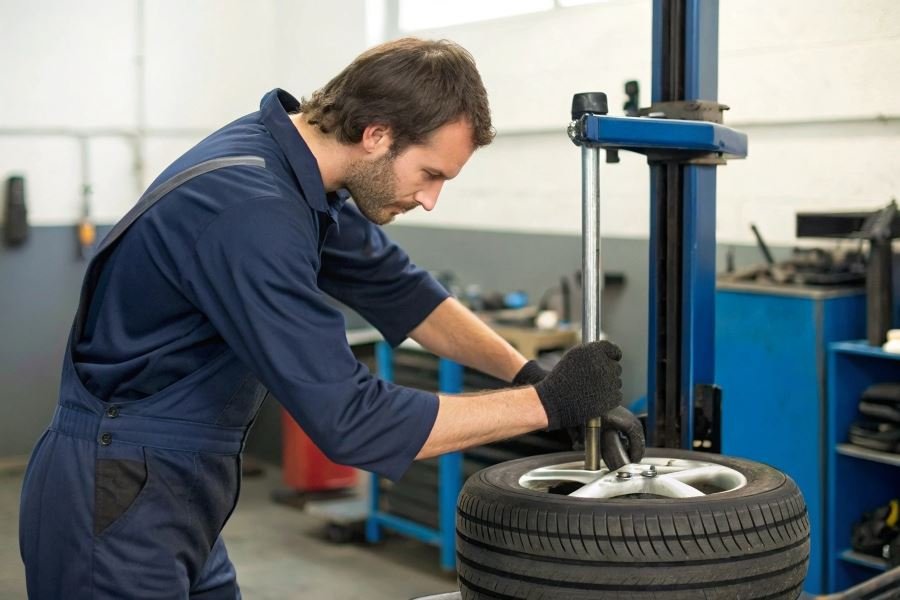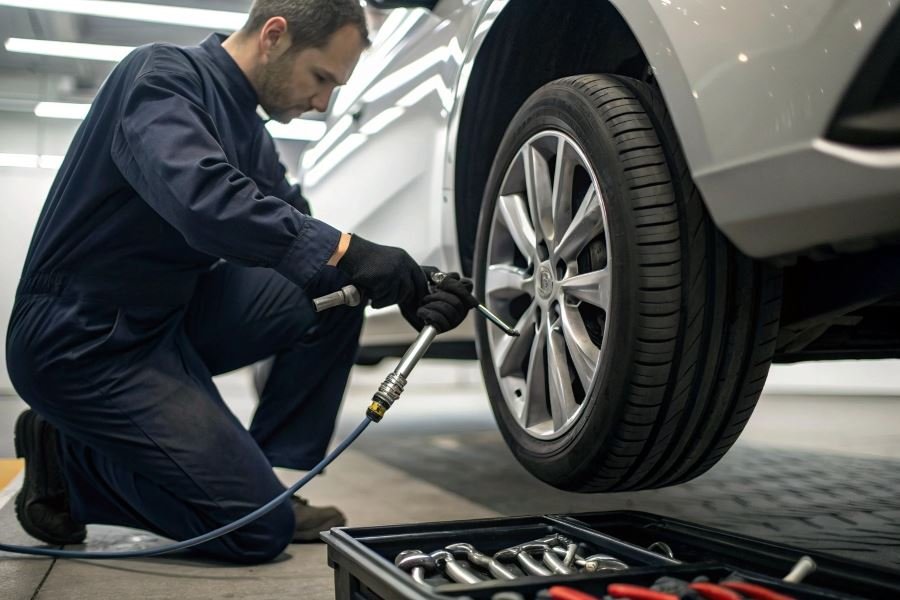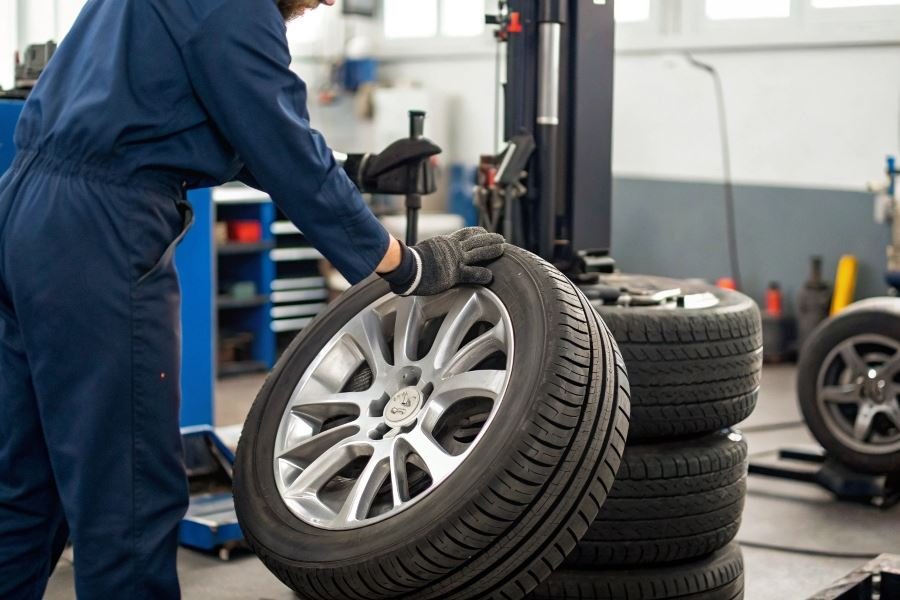
Ever walked into an auto repair shop and wondered how technicians diagnose those mysterious engine lights? Behind every successful diagnosis stands a powerful tool that’s revolutionizing small auto services: the board expander.
Board expanders serve as the critical bridge between your vehicle’s complex electronic systems and the technician’s diagnostic capabilities. These sophisticated devices connect to your car’s electronic control units (ECUs), allowing mechanics to access, analyze, and repair the intricate digital networks that power modern vehicles. As cars have evolved from purely mechanical machines to rolling computers, these tools have become absolutely essential for even the most basic repairs.
For small auto service owners, selecting the right board expander isn’t just about having another tool in the garage—it’s a business-critical decision. The right equipment can dramatically increase your diagnostic accuracy, reduce repair times, and ultimately boost customer satisfaction. Conversely, the wrong choice might leave you unable to service newer vehicle models, creating a competitive disadvantage that’s difficult to overcome.
When evaluating board expanders, three primary factors should guide your decision:
- Compatibility range – Does it work with domestic and imported vehicles? Can it handle both older models and cutting-edge systems?
- Software support – How frequently are updates released? Is there a subscription cost?
-
“Durability in a shop environment is non-negotiable. Your tools need to withstand drops, spills, and daily use without failing.”
The investment in quality diagnostic equipment pays dividends through faster repairs, fewer comebacks, and the ability to tackle complex electronic issues that would otherwise require outsourcing.
Technical Essentials for Your Auto Shop’s Board Expander
When equipping your auto service with the right tools, a board expander represents one of those critical investments that can dramatically transform your repair capabilities. The technical specifications of these hydraulic workhorses determine not just what you can fix, but how efficiently and safely you can do it.
Selecting the perfect board expander for your auto service requires careful consideration of several technical criteria. The process involves evaluating load capacities, dimensional requirements, vehicle compatibility, and hydraulic system quality—all factors that directly impact your shop’s productivity and service offerings.
Load capacity that meets your daily demands
The foundation of any board expander’s performance is its load capacity—this isn’t just a number, it’s your shop’s capability ceiling. Most quality expanders for small auto services range from 10 to 20 tons, with premium models reaching up to 30 tons.
Real-world application matters: A 10-ton expander might handle basic panel work on sedans and compact vehicles, but you’ll need at least 15 tons for light trucks and SUVs. For shops regularly servicing commercial vehicles, nothing less than 20 tons will suffice.
Dimensional specifications are equally crucial:
| Expander Type | Stroke Length | Opening Width | Ideal Applications |
|---|---|---|---|
| Compact | 5-8 inches | 6-9 inches | Door panels, quarter panels |
| Standard | 9-12 inches | 10-14 inches | Frame straightening, rocker panels |
| Heavy-duty | 13+ inches | 15+ inches | Commercial vehicle repairs, severe damage |
The working height and footprint dimensions must align with your available space—remember that a board expander with a 24-inch width might require up to 40 inches of operational clearance.
Vehicle compatibility across your customer base
Modern auto shops serve diverse vehicle types, making versatility a non-negotiable feature. The best board expanders offer adjustable mounting systems and interchangeable attachments that adapt to different vehicle designs.
Look for expanders with universal mounting brackets that accommodate both unibody and body-on-frame construction. European vehicles often require different attachment points than American or Asian models, so ensure your expander includes appropriate adapters.
Key compatibility features include:
- Multi-position mounting plates
- Quick-release attachment systems
- Adjustable working angles (minimum 180° rotation capability)
- Extension arms for reaching recessed areas
Shops specializing in classic car restoration should prioritize expanders with fine adjustment capabilities and delicate pressure control, while those focusing on collision repair need robust systems with rapid deployment features.
Hydraulic system: The heart of performance
The hydraulic system determines not just the power but the precision and longevity of your board expander. This is where budget options and premium models truly diverge.
Pressure rating integrity is paramount—look for systems rated at least 10,000 PSI with burst ratings 50% higher than operating pressure. Enerpac and Porto-Power hydraulic systems offer industry-leading reliability with minimal pressure drop during extended operations.
The pump mechanism significantly impacts operational efficiency:
- Two-stage pumps provide faster approach speeds
- Fine-control valves enable precision adjustments of 0.5mm or less
- Sealed systems prevent contamination in dusty shop environments
- Thermal protection prevents overheating during marathon straightening sessions
Hydraulic fluid quality matters tremendously—synthetic options from Mobil or Shell resist breakdown under high temperatures and maintain consistent viscosity across operating conditions.
The most efficient systems feature quick-connect couplings that allow rapid tool changes without system depressurization, saving valuable minutes on every job. This operational efficiency translates directly to increased throughput and higher customer satisfaction—technical considerations that ultimately determine your shop’s reputation and profitability.
Smart Money Moves for Your Auto Shop’s Board Expander
When you’re running an auto service, every equipment purchase needs to deliver real value. Board expanders—those specialized tools that help straighten damaged vehicle frames—represent a significant investment that demands careful business consideration beyond just technical specifications.
The dollars and sense of board expanders
The financial equation of a board expander purchase goes far beyond the sticker price. Entry-level models typically start around $15,000, while premium systems with advanced hydraulics and digital measurement capabilities can exceed $50,000. But what’s the actual return on this investment?
A properly utilized board expander can generate between $75-150 per hour in service revenue. Most shops report recouping their investment within 8-14 months, depending on volume. The math becomes compelling when you consider:
| Investment Level | Typical Monthly Revenue | Average ROI Timeline |
|---|---|---|
| Basic ($15-20K) | $3,000-5,000 | 12-14 months |
| Mid-range ($25-35K) | $5,000-8,000 | 9-12 months |
| Premium ($40K+) | $8,000-12,000 | 8-10 months |
The hidden profit center lies in customer retention. Shops equipped with quality board expanders report 30-40% higher customer return rates for additional services, creating revenue streams that extend far beyond the frame repair itself.
Finding space in your operation
Board expanders aren’t just financial investments—they’re spatial ones too. The physical footprint requirements vary dramatically based on system design:
Fixed installations typically require dedicated floor space of 150-300 square feet, plus adequate ceiling clearance (minimum 12 feet for most systems). This permanent commitment demands careful planning of workflow patterns.
Mobile systems offer flexibility but still need storage space and adequate working area when deployed. Their advantage lies in adaptability, though this comes with some trade-offs in power and capability.
Installation considerations extend beyond space. Most systems require:
- Reinforced concrete flooring (4-6 inches minimum)
- Dedicated electrical circuits (typically 220V/30-50A)
- Compressed air connections (90-120 PSI)
- Proper ventilation and lighting
The Chief Automotive EZ Liner, for example, offers a smaller footprint option that many shop owners find ideal for spaces under 200 square feet, while maintaining professional-grade capabilities.
Long-term reliability factors
The true cost of ownership emerges over time. Quality board expanders from manufacturers like Car-O-Liner and Celette typically offer 3-5 year warranties on major components, but maintenance requirements vary significantly.
Hydraulic systems generally require fluid changes every 1,000 operating hours and seal inspections twice yearly. Mechanical systems need less frequent maintenance but often more significant repairs when issues arise.
The maintenance equation includes:
- Routine service costs ($800-1,500 annually)
- Downtime impact during repairs
- Availability of local technicians certified to service your specific model
Warranty coverage depth matters more than duration. Some manufacturers offer comprehensive parts-and-labor coverage, while others limit coverage to specific components or exclude labor costs entirely.
Smart shop owners report that manufacturer training programs significantly reduce long-term maintenance costs. A technician properly trained on equipment operation can extend the practical lifespan of a board expander by 30-40% through proper usage patterns and preventive maintenance.
Discover the 7 crucial criteria for selecting the perfect board expander for your auto shop. Learn how to evaluate load capacity, compatibility, hydraulic quality, and ROI to make a smart investment that enhances your repair capabilities.
Discover the 7 crucial criteria for selecting the perfect board expander for your auto shop. Learn how to evaluate load capacity, compatibility, hydraulic quality, and ROI to make a smart investment that enhances your repair capabilities.


